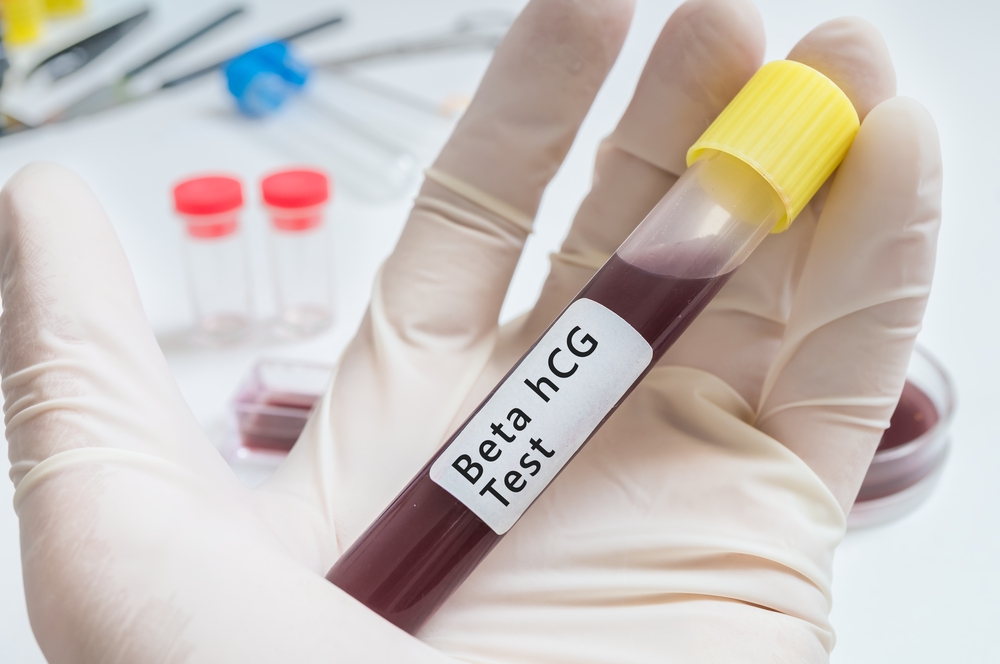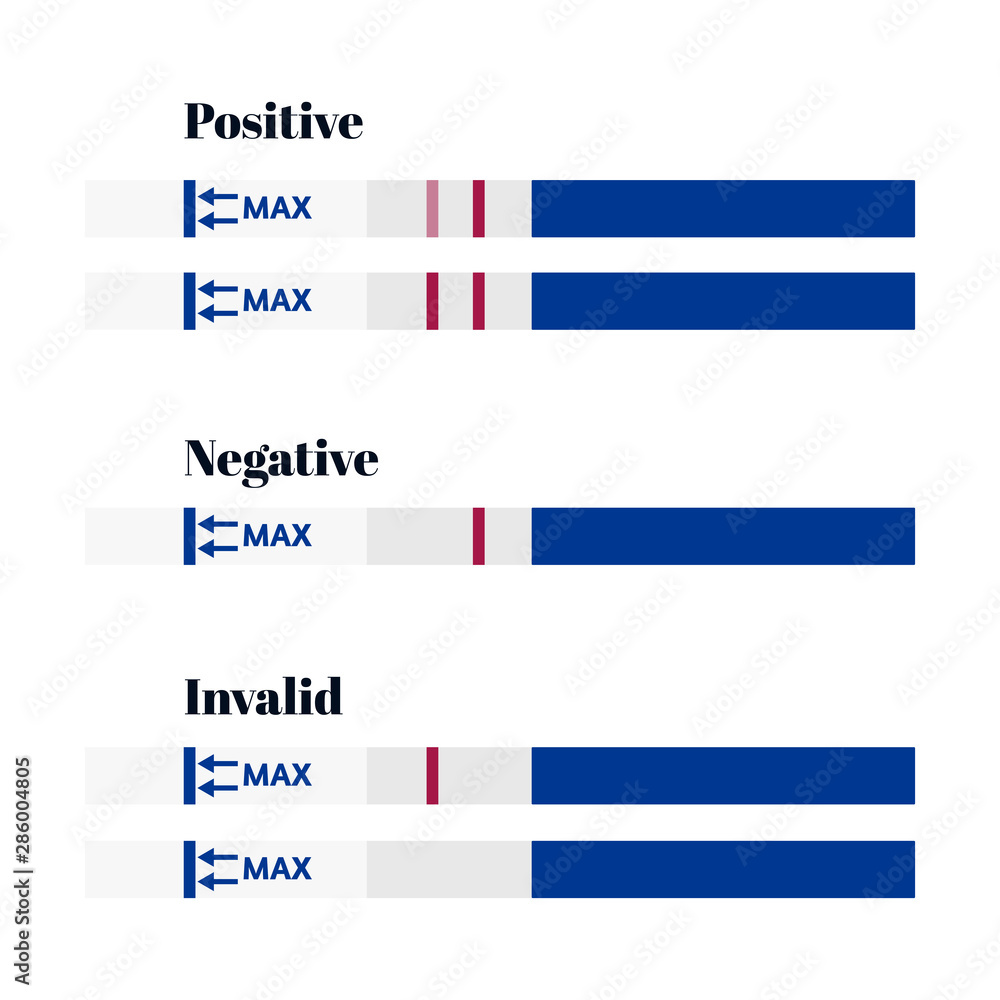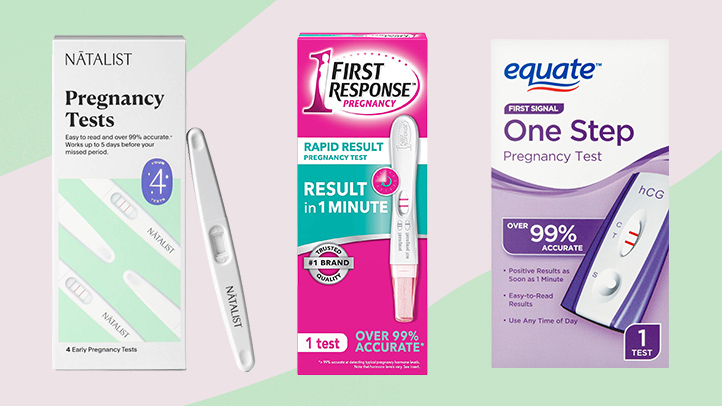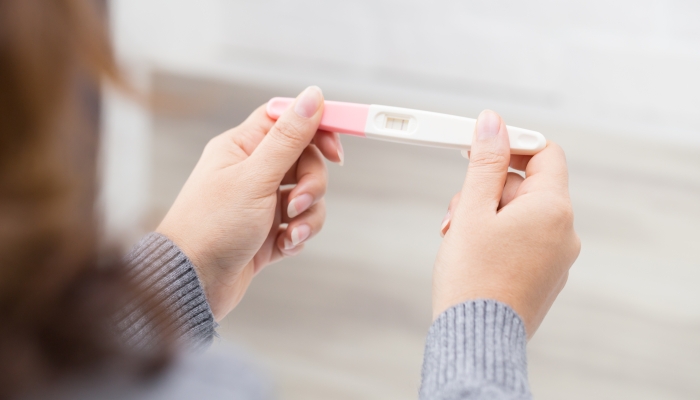Pregnancy tests have become an integral part of reproductive health, offering a convenient and accessible way for women to determine whether or not they are pregnant. These tests work by detecting the presence of human chorionic gonadotropin (hCG), a hormone produced during pregnancy. However, like any diagnostic tool, pregnancy tests are not infallible and can sometimes yield an invalid result.
An invalid pregnancy test result, as opposed to a positive or negative result, is inconclusive or unclear. This can occur for a variety of reasons and can cause confusion and uncertainty for those eagerly awaiting a definitive answer. It’s important to understand that an invalid result doesn’t necessarily indicate a problem with the pregnancy itself, but rather, it’s often a sign that the test was unable to accurately detect the presence or absence of hCG.
Understanding what an invalid pregnancy test means is crucial for anyone trying to conceive or suspect a pregnancy. It can guide them on the necessary steps to take following an invalid result, whether that’s retaking the test, trying a different brand, or seeking medical advice.
Recommended: Hair Fall After Pregnancy Home Remedy
This guide aims to delve deeper into the causes and implications of an invalid pregnancy test, shedding light on the reliability of these tests and the factors that may influence their outcomes.
Understanding Pregnancy Tests
Pregnancy tests are a crucial tool for women trying to conceive or those who suspect they might be pregnant. They work by detecting the presence of a hormone called human chorionic gonadotropin (hCG), which is produced in the body after a fertilized egg attaches to the uterine lining. This usually happens about six days after fertilization, but it can vary.
Recommended: Can Boric Acid Kill Sperm?
There are two main types of pregnancy tests: urine tests and blood tests.
Urine Tests
These are the most common types of pregnancy tests and can be done at home. They involve testing a sample of urine for the presence of hCG. Home pregnancy tests are convenient and private, but their accuracy depends on several factors, including the timing of the test and the concentration of hCG in the urine.

Blood Tests
These are done in a healthcare provider’s office and can detect pregnancy earlier than a home urine test. They can also measure the exact amount of hCG in the blood, which can be useful in tracking certain problems during pregnancy.

Understanding how pregnancy tests work and how to use them correctly can help women accurately determine whether or not they are pregnant and take the appropriate steps toward prenatal care or family planning.
Recommended: Can You Drink Alcohol After Taking Abortion Pill?
What Makes a Pregnancy Test Invalid?

A pregnancy test can become invalid for several reasons:
- Testing Too Early or Too Late: Pregnancy tests detect the hormone hCG in your urine, which begins to rise and can double every two to three days in the early part of pregnancy. Testing too early may give you a false negative result as hCG levels may not have reached the detectable level. Surprisingly, testing too late can also give an invalid result, especially when pregnancy hormones get too high, which can happen late in pregnancy or with twin pregnancies.
- Incorrect Test Usage: Not following the instructions that come with each pregnancy test can lead to an invalid result. These instructions provide information about how to open the package, how long to wait to interpret your test results, and how long a test can sit out before it would be considered an invalid result.
- Insufficient Urine or Blood Sample: An insufficient urine or blood sample can cause the test to be unable to provide a clear answer regarding your pregnancy status.
- Using an Expired or Faulty Test Kit: Using a test kit that is past its expiration date or is damaged can also lead to an invalid result.
If you think you got an inaccurate pregnancy test result, you can talk to your healthcare provider and ask for additional testing.
Recommended: Top 6 Signs Of Poor Egg Quality You Should Know
Steps to Take After Receiving an Invalid Result
- Identify the Error: Determine the nature of the invalid result. Is it a computational error, a procedural error, or a data error?
- Review the Procedure: Go through the process or experiment that led to the result. Look for any steps that may have been performed incorrectly.
- Check the Data: Ensure that the data used in the process is accurate and reliable. Incorrect data can lead to invalid results.
- Recompute: If the invalid result is due to a computational error, redo the calculations. A simple mathematical error can sometimes lead to an invalid result.
- Repeat the Experiment: If the invalid result is from an experiment, consider repeating the experiment to verify the result.
- Consult Others: Discuss the result with colleagues or experts in the field. They may provide insights or identify errors that you might have overlooked.
- Document Everything: Keep a record of all your findings, even if they are invalid. This documentation can be useful for future reference or for identifying patterns.
- Seek Expert Help: If you’re unable to determine the cause of the invalid result, consider seeking help from a specialist or expert in the field.
Remember, an invalid result is not a failure, but an opportunity to learn and improve.
Recommended: Top 5 Foods To Avoid While Taking Letrozole For Fertility
Tips for Choosing and Using Pregnancy Tests

- Choose a Reliable Brand: Opt for a pregnancy test from a reputable brand. These tests are usually more accurate and reliable.
- Check the Expiry Date: Always check the expiry date on the package. An expired test may not provide accurate results.
- Read the Instructions: Each brand may have slightly different instructions. Make sure to read them thoroughly before taking the test.
- Best Time to Test: The best time to take a pregnancy test is in the morning, as the pregnancy hormone (hCG) is most concentrated in your urine at this time.
- Wait for the Right Time: It’s recommended to wait until the first day of your missed period to take the test for the most accurate results.
- Understanding the Results: Make sure you understand how to read the results. Some tests show a line, others a plus or minus sign, and some even have a digital display.
- Confirm with a Doctor: Regardless of the result, it’s a good idea to confirm the result with a doctor, especially if the test is positive or if you continue to have symptoms of pregnancy after a negative test.
Remember, no test is 100% accurate all the time. If you’re unsure about the results, consult a healthcare professional.
Recommended: Does Family Planning Affect Future Pregnancy?
Emotional and Psychological Impact of Invalid Pregnancy Tests
Invalid pregnancy tests can have significant emotional and psychological impacts on individuals. Here are some potential effects:
- Anxiety and Stress: Invalid tests can cause significant anxiety and stress, especially if the individual is actively trying to conceive or avoid pregnancy. The uncertainty can lead to worry and tension.
- Disappointment or Relief: Depending on the individual’s circumstances, an invalid test can lead to feelings of disappointment or relief. For those trying to conceive, a false negative can be disheartening, while a false positive can cause unnecessary excitement. Conversely, for those not ready for parenthood, a false positive can cause panic, while a false negative can bring unwarranted relief.
- Confusion: Invalid tests can lead to confusion and uncertainty about one’s health and fertility status. This can be particularly challenging when making decisions about future family planning or medical care.
- Impact on Relationships: The emotional rollercoaster caused by invalid tests can strain relationships. Partners may experience stress, disappointment, or relief alongside the individual taking the test.
- Self-Blame or Guilt: In some cases, individuals may blame themselves for the invalid test results, leading to feelings of guilt or shame. This can be particularly true if they believe their actions or health contributed to the result.
- Financial Stress: Repeated invalid tests can also lead to financial stress, as individuals may feel compelled to purchase additional tests or seek medical advice to confirm the results.
It’s important to remember that while these feelings are valid and understandable, support is available. Healthcare professionals can provide advice and guidance, and counselling or support groups can offer emotional assistance.
When to Consult Your Doctor

An invalid pregnancy test can be a source of confusion and anxiety. It’s important to know when to consult a healthcare professional in such situations:
- Repeated Invalid Results: If you’ve taken multiple tests and all have returned invalid results, it’s advisable to consult a healthcare professional. This could indicate a problem with the tests themselves, or it could be a sign that you’re not using them correctly.
- Symptoms Persist: If you continue to experience symptoms of pregnancy (such as missed periods, nausea, or breast tenderness) despite an invalid test result, it’s important to seek medical advice. These symptoms could indicate pregnancy or other health issues.
- Signs of Ectopic Pregnancy: Symptoms such as severe abdominal pain, shoulder pain, or feeling faint or dizzy could indicate an ectopic pregnancy, which is a medical emergency. If you experience these symptoms, seek immediate medical attention.
- After a Miscarriage: If you’ve recently had a miscarriage and are getting invalid test results, it’s important to consult a healthcare professional. This could indicate complications related to the miscarriage.
- Underlying Health Conditions: If you have underlying health conditions that could affect your fertility or pregnancy, and you’re getting invalid test results, it’s advisable to consult a healthcare professional.
Recommended: Can a Woman Have an Orgasm After Menopause?
Remember, home pregnancy tests are generally reliable, but they’re not infallible. If you’re unsure about your results or if you’re experiencing symptoms that concern you, it’s always best to consult a healthcare professional. They can provide further testing and guidance, ensuring you receive the care you need.
Conclusion
An invalid pregnancy test typically indicates that the test was not performed correctly or the test kit was faulty. It could be due to reasons such as insufficient urine or blood samples, expired test kits, or incorrect testing procedures. It does not provide any reliable information about whether a woman is pregnant or not.
Therefore, in case of an invalid result, it is recommended to take another test or consult a healthcare professional to ensure accurate results. It’s crucial to carefully follow the instructions provided with the test kit to avoid invalid results. Remember, while home pregnancy tests can be a helpful first step, they are not definitive, and medical consultation is always advised for confirmation.
